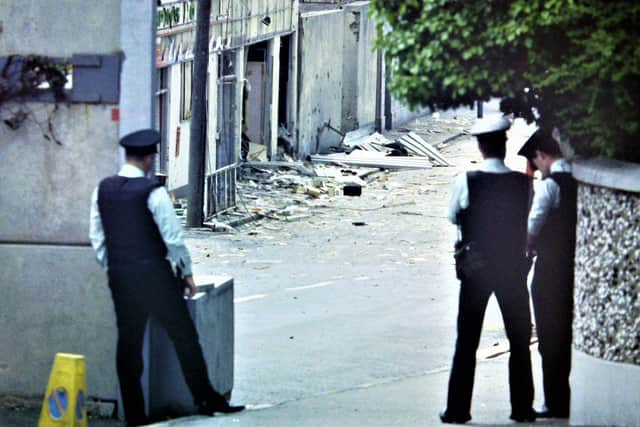Ex-Special Branch detective: Struggling for law-and-order during Troubles seems like a thankless task – if this were anywhere else they’d be getting knighthoods
and live on Freeview channel 276
William Matchett was speaking to the News Letter ahead of a potentially highly-significant court challenge on Tuesday, when a group of retired officers will bring a case against the ombudsman’s office.
The case is essentially three judicial review hearings in one, and one of the central themes will be the claim that the ombudsman is wrong to deploy the term above.
Advertisement
Hide AdAdvertisement
Hide AdThe courts had already warned the ombudsman’s office against making findings of “collusion” – so instead the ombudsman has settled on the phrase “collusive behaviours”.


But many ex-police have complained that this gives the impression that a crime has been committed (such as providing material support to terrorists) despite an absence of prosecutable evidence.
Dr Matchett said: “I think when you’re an investigating statutory authority, your remit is to investigate a complaint, and you have to stick within normal criminal justice and the normal rules of due [process] and a fair trial – put the evidence of an offence in criminal law to the Director of Public Prosecutions.”
When the phrase “collusive behaviour” is reported in the news “people take the strong inference that the police must’ve done something wrong – but there’s no evidence to say that” which would stand up in court.
COLLEAGUE LOST AND EYE, LEG, ARM... AND CAME BACK TO WORK:
Advertisement
Hide AdAdvertisement
Hide AdHe said the RUC had been inundated with terror offences, and that a lot of the time the inability to stop attacks and catch perpetrators was not down to “failings” but to “limitations”, such as massive witness intimidation.
He cited the case of an officer he worked with who got a tip-off about an arms dump, went to investigate, and got blown up – losing a leg, arm, and an eye.
He went on to return to work as a front line officer.
Dr Matchett said he know a number of such dedicated police officers, and in “any other place we’d be giving them knighthoods”.
But in society at large “here it doesn’t matter how good you were or how much of an effort you made... there’s a degree of thanklessness about it – people saying ‘oh, you could’ve done more’.”
‘TRAPPED ON THE OTHER SIDE OF THE LOOKING GLASS’
Advertisement
Hide AdAdvertisement
Hide AdDr Matchett said that at any given time in the Troubles, an average detective “might have 20 cases, and is coming down with incidents to investigate from the UVF, UDA, PIRA, INLA”.
The ombudsman then looks at “a snapshot in time, isolated to one incident”.
He added: “There’s a lot of chaos in the country, and they sort of [portray it] as if this was quite easy to deal with. It was really difficult to deal with. “There’s only so much a police organisation on their own can do when the majority of the community that need to help them, don’t...
“We just can’t nick these people – we don’t have the evidence, and you can’t magic evidence out of the air.”
Advertisement
Hide AdAdvertisement
Hide AdHe added: “Policing was not perfect here. It’s not perfect anywhere in the world. There were lazy cops. Bad cops.
“But it’s nothing remotely like what it’s been portrayed since spring 1998.
“It does feel like Alice in Wonderland, except you’re trapped and can’t get back through the looking glass.”
MORE FROM THIS REPORTER: